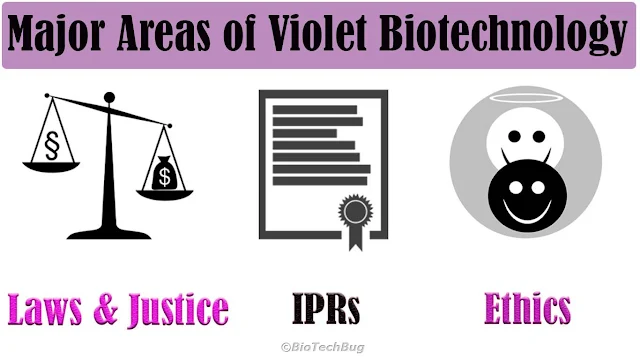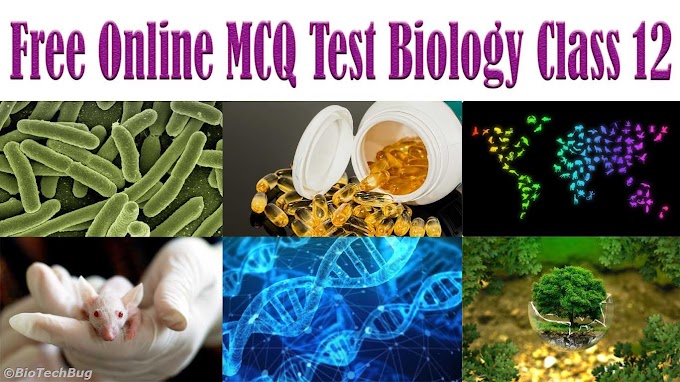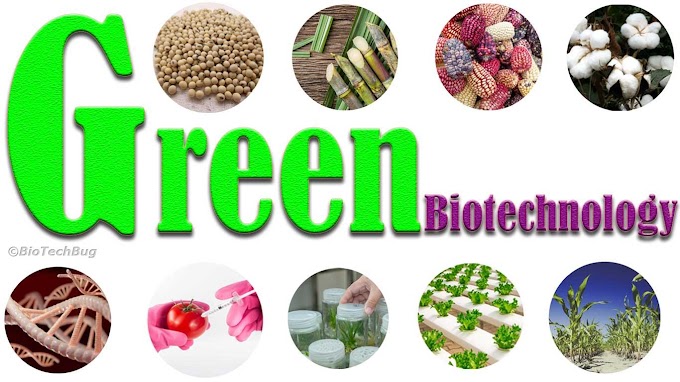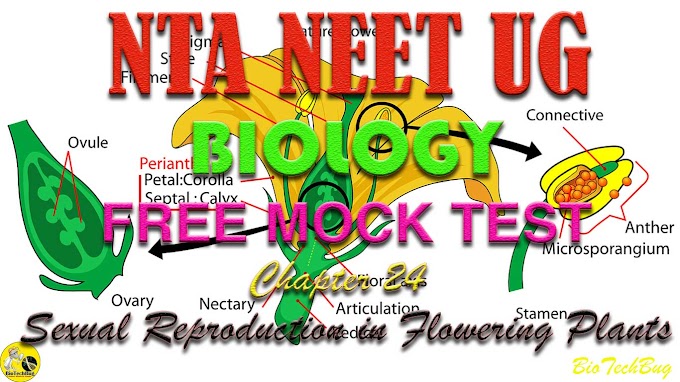As Biotechnological activities
extensively increase in human life, it also causes many issues related to
ethical, social, and economical factors.
The use of biotechnological techniques in living organisms also has been
criticized by many sociologists, philosophers, religious scholars, scientists,
and economists. Arising these issues
caused the need to formation Violet Biotechnology, which would deal with and
regulate these issues related to Biotechnology. It provides the platform for
the regulation and resolving of all problems related to Biotechnology.
Violet Biotechnology is the legal
branch of Biotechnology that encompasses intellectual property rights, patents,
laws, ethical issues, biosecurity, philosophic issues, biosafety, and legal
issues. Violet biotechnology has to deal with all ethical, moral, and patent
issues developed by the modification of genes in living organisms, plants, and
animals.
Purple Biotechnology is mainly
related to legal and regulatory issues in biotechnology. While ethical issues,
biosafety, biosecurity, and philosophic issues related to Biotechnology fall under
Violet Biotechnology. Purple Biotechnology majorly focuses on the making of
rules, laws, and publishing patents related to biotechnology. But majorly
Purple and Violet Biotechnology are considered the same area of Biotechnology.
You Should Read: What are the colors of Biotechnology?
History of Violet Biotechnology
Getting patents on biological
techniques is not a new story. Microbiologists and scientists already got
patents on the organisms for the production of biological products through
microorganisms.
Patenting on living organisms is not
new it is about 148 years old. For the first time, Louis Pasteur gets US
Patent No. 141.072 in the year 1873 for the organic germ-free Yeast as the
article of manufacture. Later in 1975, the German Federal Supreme Court
delivered a judgment in Baker’s yeast case that 'Microorganisms are
patentable'.
Violet Biotechnology comes into
existence when the US Supreme Court gives a decision that genetically modified
microorganisms can be patented on June 16th, 1980.
You Like to Solve:
Subject Wise MCQs on Biotechnology
Need of Violet Biotechnology
Biotechnological techniques
exploit the application of biological organisms for the benefit of human
beings. Biotechnology techniques are now used in various sectors such as
agriculture, food, medical, industry, environment, etc. Production of
disease-free plants, new varieties of plants, new diagnostic kits, enzymes,
antibodies, vaccines, etc. Recombinant DNA (rDNA) technology is majorly used in
the medical field for human health than in agriculture and industrial applications.
Biotechnology develops new
technologies that use the techniques of genetic manipulation to eliminate
genetic diseases from crops and animals and create improved crop varieties and
farm animals. But all these are also related to some issues and dangers that
accompany them.
Biotechnology companies want to
take patents for making huge profits. So without understanding the deep
futuristic issues allowing patents can raise many ethical, biosafety, legal,
and policy questions in near future. So the main areas of concern for Violet
Biotechnology are listed below.
- Patent Publications
- Regulation and compliance
- IPR Protection in Agriculture
- Impact of IPRs Protection on Plant Varieties
- Stem Cell Research
- Genetically Modified Crops
- IPR Education in Life Science
- Patent Claims
- Protection of Plant Breeders’ Rights
- IPRs Policy Regime
- Regulation and compliance
- Ethical and constitutional implications
- Side-effects of transgenic foods on human health
- Negative effects on the environment
- Misuse of human genetic engineering
- Abuse of animals
You Should Solve: MCQs on IPR Bioethics and Biosafety
Major Areas of Violet Biotechnology
Violet or Purple Biotechnology
works in various areas of Biotechnology but it has major concerns related to
ethical and moral issues generated by the modification of genes of organisms
and thus leads to problematic issues related to patent rights. Violet
Biotechnology can be broadly divided into three broad categories.
- IPRs in Biotechnology
- Legal and Regulatory Issues in Biotechnology
- Ethical and Philosophical Issues in Biotechnology
1. IPRs in Biotechnology
Intellectual Property Rights
(IPRs) are an important feature in all innovation-based systems. Patents and
copyrights work as catalysts for innovation in knowledge-intensive sectors like
biotechnology. IPRs refer to those products that are developed by using the
human intellect that has commercial value and needs to protect by legal
protection.
Since research in biotechnology
is expensive so there is a need for an award that takes risk of innovation in
the biotechnology field. This is a very crucial aspect of cost recovery for
biotechnology firms that invested huge money in innovation. Patents are very
crucial to innovative R&D start-ups and biotechnology firms because it is
the only assets for those to recover their investment in the research.
You Should Solve: MCQs on Legal and Regulatory Issues in
Biotechnology
2. Legal and Regulatory Issues in Biotechnology
The major elements for the regulation
of biotechnology include risk analysis, laboratory control, environmental
release, traceability, monitoring measures, and socio-economic considerations. To
proper regulation of Biotechnological techniques in the world, there are
various types of regulatory approaches adopted by the countries on
biotechnology.
In the United States, the Food and
Drug Administration (FDA) issued a policy statement for the biotechnological
products that it considers to be as safe as conventional food and needs
pre-market approval only necessary under certain conditions in the year 1992.
In India, there is a BRAI bill to
regulate the Biotechnology Industry. Before the bill, India has no proper bill
to regulate the Genetic Industry in India. There were various laws and act to
regulate the Biotechnology industry similar to other industries like
Environment Protection Act, EXIM Policy, Intellectual Property Rights,
Recombinant DNA Safety Guidelines, National Seed Policy, Biological Diversity
Act, etc. After proper analysis and research with clear provisions Government of
India passed the Biotechnology Regulatory Authority of India bill BRAI in
the year 2013.
3. Ethical and Philosophical Issues in Biotechnology
Every area has ethics like
business ethics, environmental ethics, military ethics, legal ethics, medical
ethics, etc. Similarly, Biotechnology has also ethics and is popularly called
Bioethics. Bioethics' main concern is to maintain the planet's ecology with the
implementation of advanced scientific manipulations in nature. The central
issues in bioethics are research related to human subjects, organ
transplantation, genetics, death and dying, and reproduction.
Ethical evaluation of
biotechnological interventions depends first on a good understanding of the science behind these interventions, and second on balancing the risks and
benefits of such interventions. Furthermore, the power of new molecular
techniques to manipulate life, inserting genes of one species into genes of
another species, and otherwise redirecting living organisms for specific human
purposes, both in captivity and in the wild, is the appropriate role.
For example, the use of
genetically modified bacteria by gene engineering to produce products like
insulin, enzymes, antibodies, etc. in a laboratory or commercial plant is
different from the release of genetically modified live bacteria into the open
natural environment.
Try to Solve: Quiz on Colors of Biotechnology
Conclusion
Violet or Purple Biotechnology is
the only branch that does not work for the production of Biotechnological products.
It deals mainly with Intellectual Property Rights and its publications in the
Biotechnology sector. It encourages new biotechnology inventions and provides
patent right in biotechnology inventions studies ethical issues, and social
aspects related to the research work in Biotechnology.
Recommended Books on Violet Biotechnology
If you want to study in deep and understand Violet Biotechnology in detail then we can recommend some books on Violet or Purple Biotechnology that you should study.









